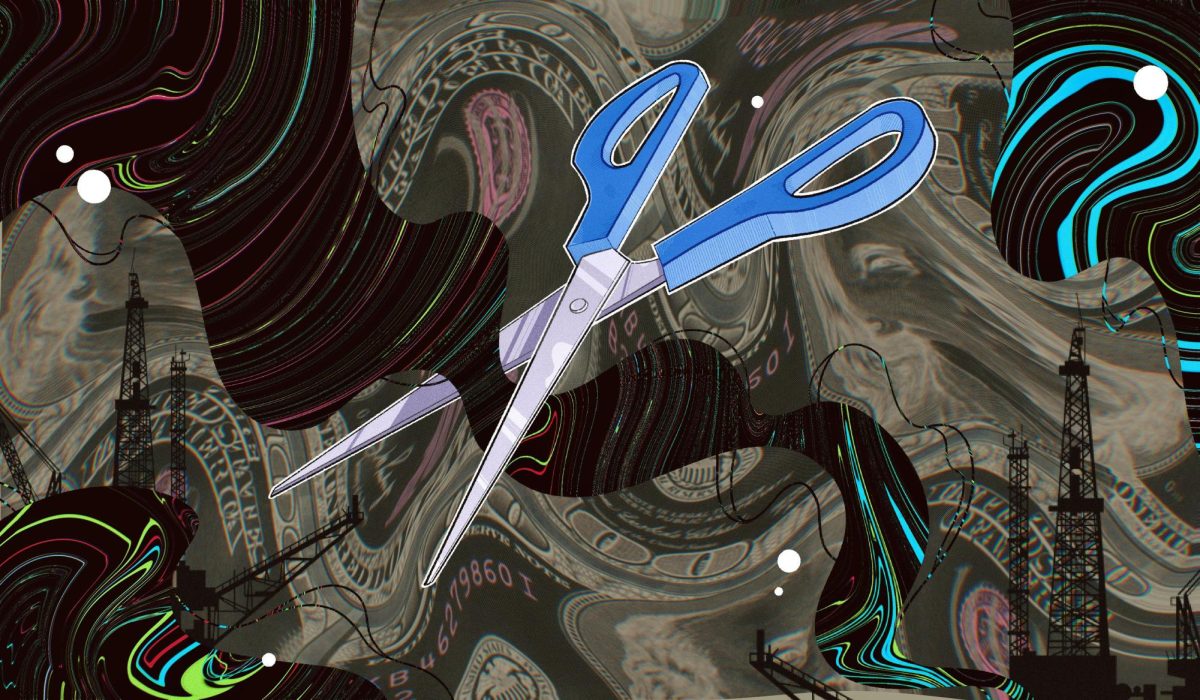One of the characters of Antonio Tabucchi’s novel “”Sostiene Pereira,”” set in Portugal in the early years of the Salazar regime, says something to the effect of this: Democracy and egalitarianism are good for the British and the Americans, but we are Latin, and all we need is a leader that we can follow and love.
My Latin eye looks at these words with a sad comprehension, but my American eye looks at them with a certain satisfaction.
These words come back to my mind every time I hear somebody — especially on TV, it seems — talk about the crisis of leadership in this country, and how the next president should not really be competent in this or that but should only posses that ineffable “”leadership”” quality, statements of which everybody seems to know the meaning except me.
While this kind of talk appears to be rather productive for one George W. Bush — well-known not to be competent in any area of human knowledge, except maybe in the ineffable ones like “”leadership”” — to claim that leadership was invented by Bush’s campaign would probably be going too far. The leadership issue has been around a lot longer than the Bush candidacy.
In front of this wave of followers’ love in search of a target, I would like to propose the observation that, if there is one thing that America does not want, it is a leader. In truth, it seems like Americans are at their best when they are deprived of a leader or when they consciously reject one. Examples of this rule can be found in such disparate areas that I would propose it as general, but for the time being, I will limit it to political arguments.
The American political tradition is a mix of declared pride in its form of government and substantial distrust of the same government. This is a cultural point of departure for America from its European origins and, as such, one of the points that characterizes the American experience.
In Europe, especially in very dirigible countries like France, the government is not just expected to administer the services, but also to set the moral and cultural tone of society. Americans do not expect this from their government and have been known to strongly oppose any proposal in this direction.
In other words, Americans do not want their government or their president (who is the most visible embodiment of the government) to be a leader of society, just a good administrator. I will not comment on this attitude. I think it has advantages and disadvantages but debating them would take me too far. I will just take note of the fact that this is what most Americans see as the role of the government and their president.
Even if Americans do not specifically call for a leader, how does the political system adjust to the presence of one? In the past, presidents exercised strong leadership on a number of occasions. In many of these instances, such exercise went — in the short run, at least — against the opinions of a large part of the population. The end of slavery was strongly opposed by the agricultural Southern establishment, political support to the civil rights movement was opposed by many people in Southern states, and women’s suffrage was opposed by, well, men.
These social innovations were eventually accepted by the majority but, at the time in which they were hot topics, all conservatives and a lot of moderates opposed them. Leadership is the capacity to go against such strong opposition and get away with it.
Given these characteristics, what are the chances that a truly charismatic political leader would be accepted in the current political climate? Very slim at best. The public opinion is more and more uniform and directed toward acquiescence to the status quo, and in recent years we have seen the emergence of a fast mechanism by which public opinion can be coalesced and fed back to the political class.
To resist this constant pressure from the public opinion and the polls would indeed require a person of uncommon characteristics; somebody willing to risk political suicide to defend certain principles. Unfortunately, these are not the characteristics that would lead one to electoral victory.
An example of this attitude is the singular fate of Bill Clinton. Probably the most intelligent and charismatic president in 40 years, his first attempt to use his leadership capacity, the ill-fated health care reform of 1993-1994, generated a nationwide commotion against him to the point that he has had to fight an uphill battle for the rest of his two terms.
America is therefore caught in a double impossibility. On one hand, its cultural heritage and political structure make it diffident to excessive leadership; a softer distribution of power is preferred. This distribution is breaking down into several important points, but that is a topic for a different column.
On the other hand, the characteristics of the electoral process generate an incompatibility between the personal qualities of a leader and those necessary to become a president, as the current batch of major party candidates painfully reminds us.
Even among them, Al Gore will probably lose the presidency because he has shown a certain knowledge of facts and numbers.
George W. Bush has lied about pretty much everything during the campaign, but these lies are perceived as consequence of his ignorance and, incredibly, this fact makes him appealing and might send him to the White House. Forget about a leader. Americans want a president they can look down on.
If one accepts — at least in first approximation — my analysis, it is quite natural to wonder why the question of leadership capacities comes out so soften in the political debate. The most obvious reason is that people are seldom coherent. This explanation has the advantage to apply to everything but it explains pretty much nothing.
I will propose another one. It is a puritan belief that hard work and strong will bring success. But as we all know very well, this is not always the case. In this case, rather than assuming a fatalist attitude more characteristic of Catholicism, it is often easier to look for somebody to blame. I cannot help but notice that blame assignment is a particularly lively activity in America. This is why we need a leader; having the power and the moral responsibility to ensure the public satisfaction, he will be the automatic and obvious target of every popular disappointment.
Creating a leader and then crushing him is a lot more satisfying, observing that certain laws and decisions that receive widespread public support often generate side effects that the same public finds unappealing.







